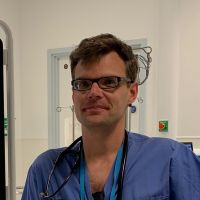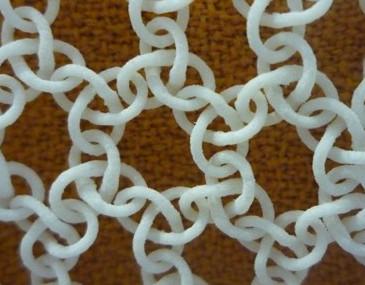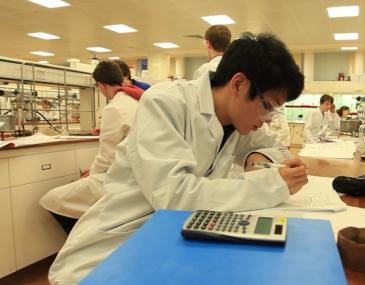The information below is for entry in 2025, or deferred entry in 2026.
Entry Details
- Typical intake per year: 11
- Minimum offer level
A Level: A*A*A
IB: 41-42 points with 776 at Higher Level - Subject requirements
A Level: Chemistry and two of Biology, Mathematics, Further Mathematics, Physics, including A* in Chemistry and A* in one of the other required subjects
IB: Higher Level Chemistry and two of Higher Level Biology, Mathematics, Physics, including 7 in Chemistry and 7 in one of the other required subjects - Useful preparation: If you are taking Mathematics at IB Higher Level we recommend Analysis and Approaches for the most competitive application, however Applications and Interpretations will also be considered.
- Admissions assessment: Yes, required at Queens' - a Pre-Registration Assessment
- Submitted work: No, not required at Queens'
Course Details
At Cambridge, you study the medical sciences first, before learning to apply that knowledge to medical practice as a clinical student. The first three years (pre-clinical studies) involve lectures, practical classes (including dissections) and supervisions, with typically 20-25 timetabled teaching hours each week. The emphasis during the clinical studies (Years 4, 5 and 6) is on learning in clinical settings: at the bedside, in outpatient clinics and in GP surgeries, which is supported by seminars, tutorials and discussion groups.
Information about the course structure, departmental teaching arrangements, offered topics and options can be found on the University of Cambridge website: Medicine Course Outline
Medicine at Queens'
The best part about Queens' Medicine is the supervisors/staff who always spare the time to help you both in your academic studies and also in exploring life beyond the medical course. For example, due to the help that I have received from my Director of Studies I was able to study a year of History within my medical degree. This has meant that my medical education has been tailored and molded to my specific interests, whilst also giving me the opportunities that a regular medical education provides.
Alma
Queens’ has approximately 42 undergraduates studying pre-clinical (Years 1-3) Medicine or Veterinary Medicine and we maintain close ties with students in the clinical years (Years 4-6) as well. The student-run Medical and Veterinary Society (MedVetSoc, which celebrated its 90th birthday in 2017) fosters cohesion and friendship between students in the pre-clinical and clinical years. A primary aim of the Society is to widen the experience of the pre-clinical Medicine and Veterinary Medicine students by engaging with speakers from clinical and related disciplines, both within and outside of Cambridge. There are six to eight speaker events each academic year, with recent topics including ‘Evolution of Medical and Surgical Specialities’, ‘Postgraduate Medical Education’, and ‘The Coolness of Naked Mole-Rats’. There is also a wide range of social events, such as a start-of-year gathering, the annual MedVetSoc Dinner and the post-exam summer Garden Party.
Students in Years 2 and 3 of the course provide great support for the first-year students through the Student Contact scheme, which allows students in later years to advise and assist students throughout their first year and beyond. Between them, the Queens' Medicine and Veterinary Medicine students form one of the most coherent and cohesive groups within the College, while at the same time being individually involved in many aspects of the College's sporting, social and intellectual life.
Pre-clinical students are supervised in the main by Queens' Fellows, supported by dedicated Teaching Associates and Research Students. Together these form a loyal team who take great personal interest in the careers of each individual student.
Medicine at Queens' is supported by the Barry Scott Fund for all academic costs, the J.A.C.K Pang Fund for medical electives, the John Cuthbert Harvey Memorial Fund for medical equipment and the Nightingale Fund for books, online subscriptions etc.
Gap years
A 'gap year' between school and university can provide wider life-experience and independence, which we consider to be valuable even if the time is spent doing non-medical related activities. We do not discriminate between those who have or have not taken a gap year.
Academic and Teaching Staff
 Dr Janet Maguire, see also Dr Janet Maguire | Department of Medicine
Dr Janet Maguire, see also Dr Janet Maguire | Department of Medicine
 Professor Stephen Price, see also Professor Stephen Price | Department of Clinical Neurosciences
Professor Stephen Price, see also Professor Stephen Price | Department of Clinical Neurosciences
 Professor Clare Bryant, see also Professor Clare Bryant | Department of Veterinary Medicine
Professor Clare Bryant, see also Professor Clare Bryant | Department of Veterinary Medicine
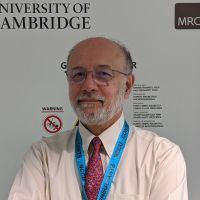 Professor David Menon (retired, Life Fellow), see also Professor David Menon | Department of Medicine
Professor David Menon (retired, Life Fellow), see also Professor David Menon | Department of Medicine
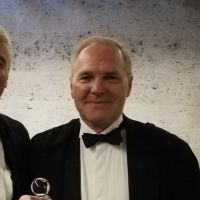 Dr Laurence Tiley, see also Dr Laurence Tiley | Department of Veterinary Medicine
Dr Laurence Tiley, see also Dr Laurence Tiley | Department of Veterinary Medicine
Professor James Brenton, see Professor James Brenton | Cancer Research UK Cambridge Institute

